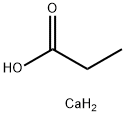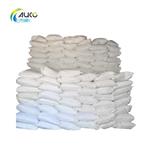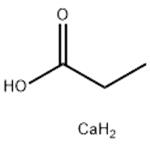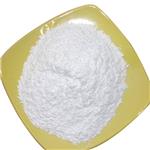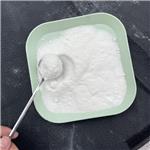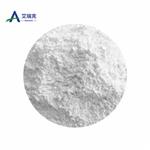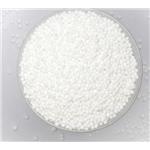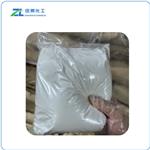Calcium propionate, also known as calcium salt and propanoic acid is a white powder that has a faint smell. The compound is stable at room temperature. It is hygroscopic and incompatible with strong oxidizing agents. It has a melting point of 300oC and a pH value of 7 to 9. It is slightly soluble in alcohol and fully soluble in water.
Calcium Propionate as the newer food antifungal agent, is the calcium salt of propanoic acid which is a antifungal agent. It appears as white crystalline or powder, odorless or having slight specific odor of propionic acid, stable under light and heat , hygroscopic, soluble in water while aqueous solution is alkaline, slightly soluble in methanol and ethanol, not soluble in benzene and acetone. It is deliquescent in moist air and loses crystal water when heated to 120 ℃ .It changes phase at 200~210 ℃ and decomposes to calcium carbonate at 330~340 ℃ . Under acidic conditions, it generates free propanoic acid which is weaker than sorbic acid while stronger than acetic acid, and has an antibacterial effect on Aspergillus niger and gas bacillus rather than yeast . Calcium Propionate is a normal intermediate product of animal metabolism and is safe eaten by animals. It has a broad antibacterial activity to mold bacteria and yeast bacteria, inhibiting the propagation of microorganisms, preventing feed molding, which can be used as a fungicide on food and feed and a preservative for bread and pastries. As a feed additive ,it can effectively prevent feed molding and prolong shelf life of feed . If combined with other inorganic complexes, it can also improve the appetite of livestock, increase milk production in cows, and its dosage is less than 0.3% of the combined feed (use propionic acid to count).
